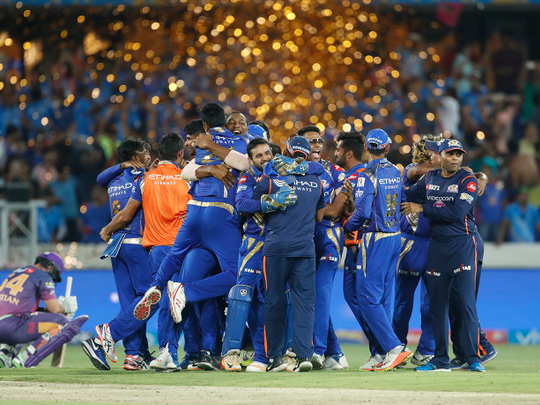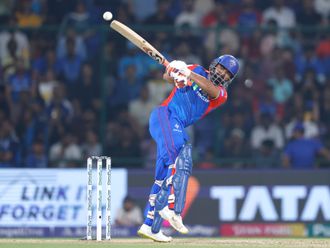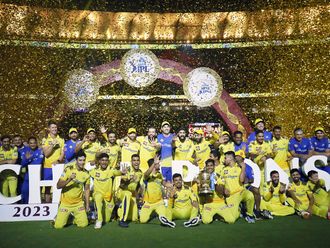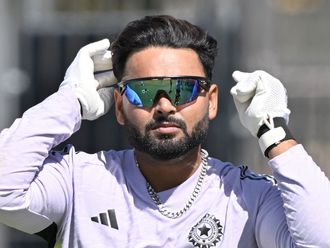
Dubai: It came as no surprise when on Wednesday morning, the buzz was that the Indian Premier League 2020 was being ‘‘postponed indefinitely.’’ The die was cast soon after the Indian Prime Minister Narendra Modi’s formal announcement a day before that the lockdown was being extended till May 3 in view of the spiralling cases of coronavirus across the country - making it impossible to meet the logistical challenges of hosting the richest cricket league of the world.
“Practically speaking, when life has come to a standstill everywhere in the world, where does sport have a future in this?” a resigned Sourav Ganguly, the president of Board of Control for Cricket in India (BCCI), said last weekend. The BCCI, alongwith the feisty former Indian captain at its helm, were optimistic of getting things moving after April 15 - the first phase of the lockout - but the pan-Indian nature of the growth in positive cases of the virus was eating into the chances of hosting a truncated edition of the league.
The mood was downbeat among Ganguly’s core team of secretary Jay Shah and secretary Arun Dhumal when following the Prime Minister’s video conference call with the chief ministers of the state on April 11 made it clear that none of the states - including the metropolitan cities where IPL matches are normally held - will be willing to lower their guard. ‘‘We will wait for a formal announcement from the government before taking a final call,’’ Dhumal told Gulf News on Sunday.
Looking ahead at various scenarios to save the league, well-placed sources in the board confirmed that the only likely window to host the IPL - with an improvised format - will be during September-October as it’s also the time when the monsoon clears out in India. ‘‘This, however, clashes with the proposed Asia Cup while one has to ensure that the IPL finishes ahead of the T20 World Cup (which kicks off on October 18 in Australia. All the eight franchises have agreed on this suggestion and there is certainly no further possibility of trying to find any window before that or playing IPL behind closed doors,’’ the sources said.

Practically speaking, when life has come to a standstill everywhere in the world, where does sport have a future in this?
Weighing in on the possibility of moving around the dates of the Asia Cup, Pakistan Cricket Board chairman Ehsan Mani had earlier asserted that the PCB will not agree to cancelling the continental event to make room for the IPL.
“I have read and heard about these speculations but right now just remember that having or not having the Asia Cup is not a decision between Pakistan and India it involves other countries as well,” asserted Mani.
It will be quite a bodyblow for the BCCI and it’s stakeholders - official broadcasters STAR Sports, title sponsors VIVO as well the co-sponsors - if the league is not eventually held this year. Though it’s still too early to arrive a ballpark figure, media reports estimate the cumulative loss to be around Rs 3869.50 crores - not counting on the hits that the players and the respective boards will take in case of a no-show.
Meanwhile, a study by Duff and Phelps - a US-based corporate finance firm revealed a few weeks back that in case the IPL is cancelled, it’s brand value is expected to fall by around 10-15%. In more tangible terms, it would be anywhere between $ 700 million and $ 1000 million - said the agency - which had valued the league at a staggering $6.8 billion last year.
Is IPL insured?
The IPL, according to the BCCI sources, is insured against eventualities like war, act of terror and natural calamities - but not against any any epidemic. This where the All England Lawn Tennis Club (AELTC), organisers of Wimbledon, showed a great amount of foresight by opting for an insurance against any epidemic after the SARS (South Asian Respiratory Syndrome) and had been paying a premium to the tune of $ 2 million every year for 17 years.
Wimbledon eventually were the gainers when they announced their first-ever cancellation during peace time, but will be compensated to the tune of $ 141 million.








